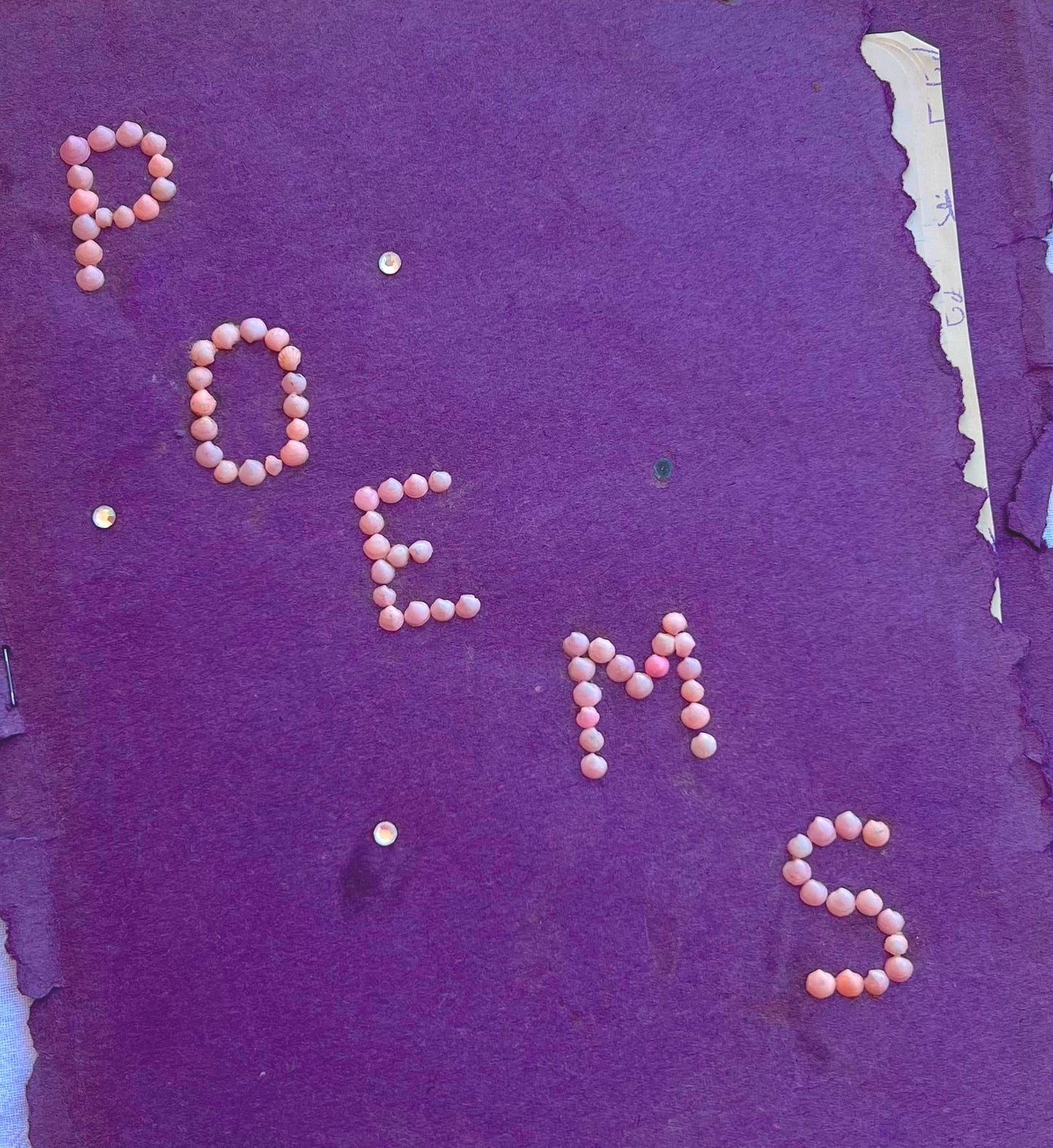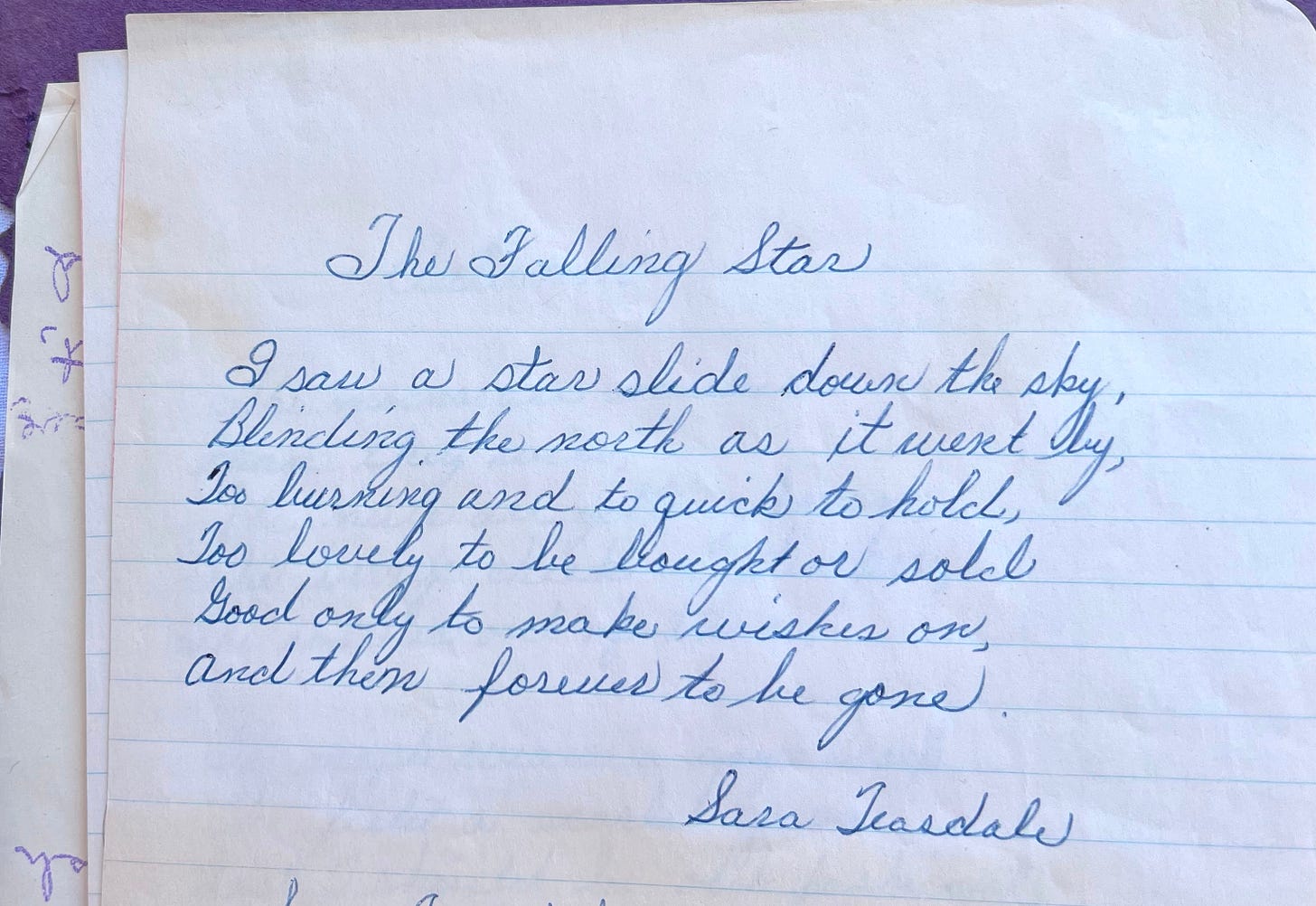My poetry notebook, shown here, was made from purple construction paper, with the title rendered in tiny pink sea shells and set off with rhinestones glued to the paper. (Remarkably, only one is missing.)
A How-to Exercise
The New York Times recently gave its readers a breather from political discourse when it published an interactive series on how-to memorize a poem. April is National Poetry Month, so what better time to revisit a cultural ritual which was once practiced in middle schools across America? In the article, the Times cultural critic A.O. Scott explained that students “would stand and recite approved works for their teachers and peers.” These days, Scott said rote learning is mostly out of fashion, adding wistfully that the trend “may be a sign of progress or a symptom of decline.” With hopeful anticipation of an English teacher, he introduces Edna St. Vincent Millay’s Recuerdo, a poem that begins cheerfully. . .
We were very tired, we were very merry—
We had gone back and forth all night on the ferry.
Over the next five days, I followed the step-by-step instructions of the recitation challenge. Every lesson began with the recitation of “We were very tired, we were very merry” before introducing the next stanza. Each day’s lesson featured a playful drawing by the illustrator Hannah Robinson. By week’s end, I had the poem memorized. I texted my college-age granddaughter my news and sent her the link to the article.
I must confess though, that this wasn’t my first rodeo. About a million decades ago, my seventh grade teacher had assigned our class a multi-part poetry project. We were to read and copy several poems, write a cursory *biography about each poet, then put the collection of poems in a notebook of our own design. Finally, each student was required to recite one of the poems in front of the whole class. I chose The Falling Star by Sara Teasdale. I like to think I selected that particular poem because it reflected my budding love of words, but the appeal was most likely due to the fact that the poem was six lines long. At my turn, I recited those six-lines precisely and perfectly. I still can. I’ve loved poetry and words ever since.
*My one-paragraph bio of Sara Teasdale reported that in 1918 she won the first Columbia Poetry Prize (later renamed the Pulitzer Prize for Poetry). My feeble research effort failed to discover that hers was not the sunny life of The Falling Star. Instead she was a tortured poet who, disillusioned and depressed, committed suicide at 48.








I, too, had fun with the NYT's Poetry Challenge. I've always been terrible at memorizing poems or lyrics to songs, but my Catholic school education definitely imprinted several prayers in my brain. I love that you still have your poetry booklet!